Overview
Welcome to McMaster’s Inclusive Teaching and Learning Resource page. We provide tools and resources that instructors may find helpful in creating inclusive teaching and learning spaces. These resources are based on principles of equity, diversity, inclusion, accessibility, and decolonization, enriched by anti-racist and indigenous teaching perspectives.
We invite instructors to explore strategies that align with their teaching practices, and we hope these resources contribute to a campus climate that promotes belonging and academic success. This page is a collaboration between the MacPherson Institute and the Equity and Inclusion Office, supporting McMaster’s EDI Strategy: Towards Inclusive Excellence and McMaster’s Partnered in Teaching and Learning Strategy
Getting started
Explore Three Key Themes: Dive into Anti-Oppressive Pedagogies; Reconciliation, Decolonisation and Indigenisation; and Accessibility and Universal Design for Learning through our easy-to-navigate tabs. Each section is organized with bold subthemes and expandable resource lists for you to click and engage with, in a drop-down fashion. We have strived to organize resources in a fashion that is scaffolded. Each section begins with resources that are introductory and foundational to get started on your learning journey, which is then followed by subheadings ordered from “easy to use and digest” tools and guides. Each sub section ends with the opportunity to engage in further resources; these are heavier and denser resources and reads such as scholarly papers or books, should you wish to engage.
Your Pace, Your Journey: These resources cater to all levels of familiarity within the three themes. Engage with the material at your own pace, and remember, there’s no one-size-fits-all approach to understanding these principles. Take this journey one step at a time and be kind to yourself as you engage with these resources and apply them.
Support Available: Should you need more concentrated consultation and conversation around the materials provided, there are additional supports available on the Supports tab.
Anti-Oppressive Pedagogies
This anti-oppressive pedagogies section is dedicated to providing foundational and progressive knowledge on the integration of intersectional anti-oppression principles and practices as a pedagogical framework and tool to fostering equity, diversity, inclusion, and accessibility in the classroom. Overall, this section provides resources on anti-racist and 2SLGBTQIA+ pedagogical designs, guidelines on how to foster inclusive language and inclusive classroom climates, and toolkits and tips on fostering equity in the classroom. Additionally, there are resources on reflecting on instructional and educational mindsets and orientations to teaching and learning, grounding equity and anti-oppression in the classroom in reflections on one’s own positionality and worldviews as an educator in the teaching and learning field.
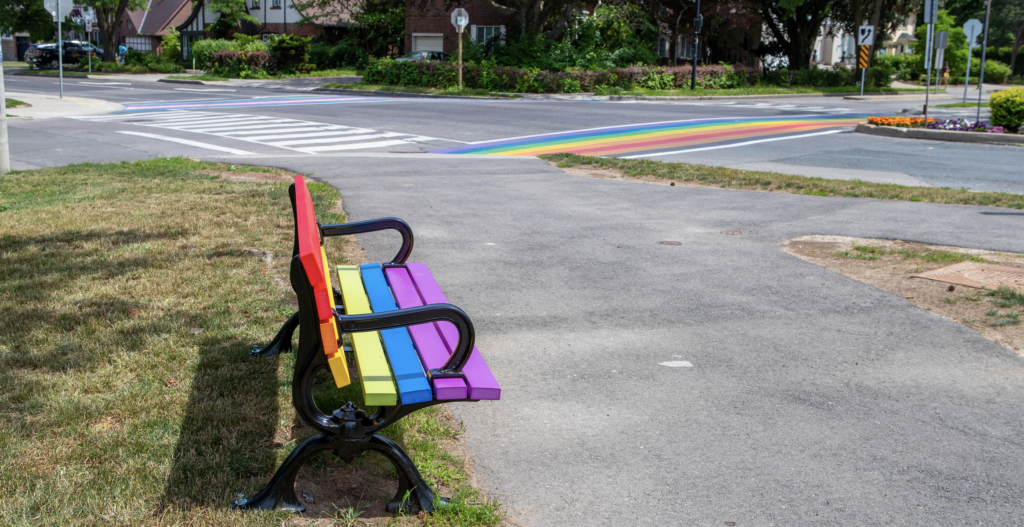
Foundational Understanding: Anti-Oppressive Pedagogies
Foundational Understanding: Anti-Oppressive Pedagogies is a short section dedicated to providing introductory definitions, philosophies, and principles of anti-oppressive and equity focused pedagogical design and integration. For those who are just getting started on their journeys to reflecting on and broadening their teaching and learning praxis, this is a great place to start!
An introduction to equity in the classroom: a short guide to equity in the undergraduate classroom – This short guide includes information about accessibility, pronouns and trans-inclusive classrooms, anti-racist pedagogy, and more. (Open Resource, Pressbook, by A. Wilks and E. Scherzinger, McMaster University)
Summary of principles of inclusive teaching and learning - (MacPherson Institute Webpage)
The Norton guide to equity-minded teaching – This guide offers concrete steps to help any instructor striving to ensure that all students have an equal chance for success. Here you’ll find actionable tips, grounded in research, for teaching online, in-person, and everywhere in between. (Free e-book, by Artze-Vega et al, 250 pages)
Foundational Understanding: Anti-Racist Pedagogies
Foundational Understanding: Anti-Racist Pedagogies serves as a brief introductory resource for those who may be unfamiliar with anti-racist approaches to teaching and learning praxis. Anti-racist classroom and teaching design is an integral component to consider when integrating anti-oppressive pedagogies into your praxis. This short section provides introductory resources on defining what anti-racist pedagogies is, brief considerations on how to integrate anti-racist pedagogical principles into educational praxis and provides a variety of imaginings of integrating anti-racist pedagogies into teaching and learning for instructors from diverse backgrounds.
The anti-racist discussion pedagogy guide – An introductory guide on building an anti-racist pedagogy in any discipline through instructor reflection, clear communication guidelines, and inquiry-based discussion. (PDF Guide, by Dr. Chew, Dr. Houston, and Dr. Cooper, 32 pages)
Practices in anti-racist pedagogies – A guidebook with accompanying self-reflective learning activities fostering introspection into personal identity, beliefs and biases. (Editable PDF guidebook, 16 pages, Course Hero)
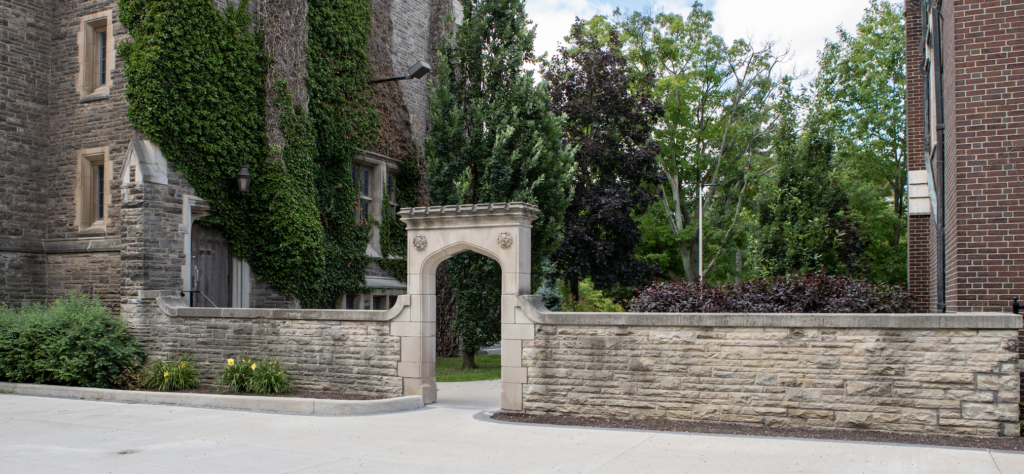
Foundational Understanding: 2SLGBTQIA+ Pedagogies
Foundational Understandings: 2SLGBTQIA+ Pedagogies is a brief introduction to 2SLGBTQIA+ pedagogies, theory, and teaching and learning frameworks. 2SLGBTQIA+ pedagogical implications are necessary components of anti-oppressive pedagogical design to consider! This is a good place to start if this is an approach to teaching that you have not grappled with before, providing diverse perspectives from academics of the 2SLGBTQIA+ community on decolonizing academia and driving an intersectional approach teaching and learning praxis that pedestal queer safety and inclusivity.
The (Academic) Trans Agenda: A Conversation about Queer and Trans Pedagogy – This recording of a panel held in 2021 elicits different perspectives on what queer and trans pedagogy is and how and why educators might incorporate queer and trans pedagogy and theory in their teaching. (Video, Carleton University’s Trans Advocacy Group)
The Interruption of Heteronormativity in Higher Education Critical Queer Pedagogies – This book explores how heteronormativity dominates higher education institutions but can be interrupted by thinking about ‘coming out’ as a pedagogical act done alongside interruptions of other dominant, binary social relations. (Book, Seal)
Intersex Justice Pedagogy: A Decolonial and Intersectional Teaching and Learning Praxis – This article advances a novel framework based on decolonial and intersectional perspectives within gender, ethnic, and African American studies. The article concludes with four questions for educators to consider about pedagogical practices that centre communities of care, embodied knowledge, and resistance of sovereignty. (Scholarly article, 9 pages, Lewis)
Queer Pedagogy: Approaches to Inclusive Teaching – This article explores how language impacts inclusion and suggests strategies that challenge heteronormative instructional practices. (Scholarly article by Nemi Neto, 16 pages)
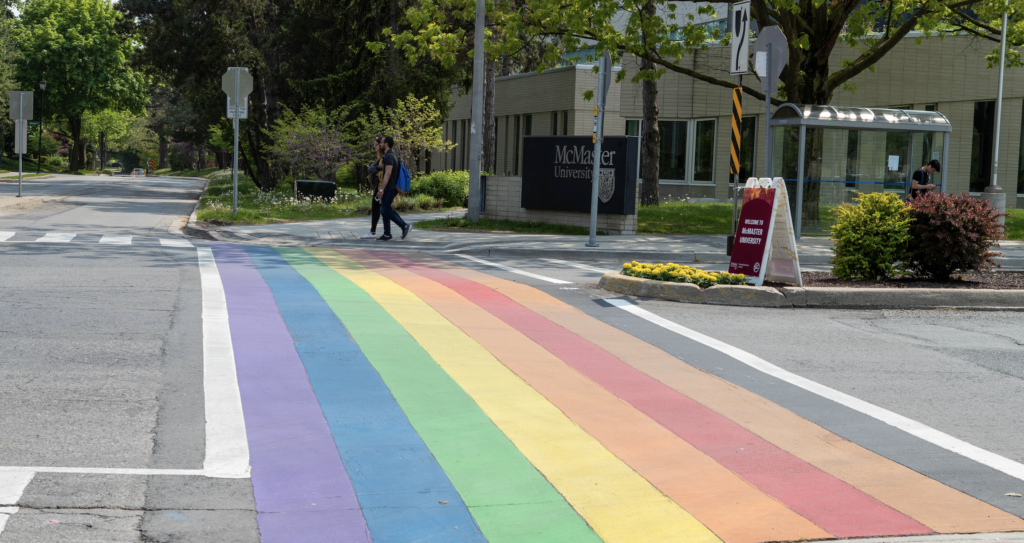
Practical Supports and Strategies for Fostering Inclusive and Equitable Learning Environments
Practical supports and strategies for fostering inclusive and equitable learning environments is a subsection dedicated to providing resources on fostering safe, brave, and anti-oppressive classroom climates, facilitating respectful discussions, and promoting anti-oppressive learning outcomes. With a specific attendance to driving cultural relevance and reflexivity in classroom materials and processes, this subsection was designed to aid instructors and educators in developing competencies around anti-racist, 2SLGBTQIA+ safe, and equitable classroom design, cultural considerations for class and curriculum planning, and self-reflective activities that foster abilities to unpack beliefs, biases, and ideological barrier to driving equity and anti-oppression in educational spaces.
Setting the tone for inclusive classrooms – This resource details five general practices for building inclusivity in the classroom. For each practice, several concrete and specific actions are proposed. (PDF, 4 pages, University of Michigan)
Guide for inclusive teaching at Columbia – This guide offers information on the following: class climate, student expectations, course content, accessibility and inclusion. (PDF Guide, 30 pages, Columbia University)
Putting Equity into Practice: Culturally Responsive Teaching and Learning – This guide is about how to implement culturally responsive teaching and learning in higher education, using digital tools and strategies to engage and empower students from diverse backgrounds and identities. (Guide, 42 pages, Every learner Everywhere)
10 Tips and resources to develop an anti-racist classroom. – Information to reflect on principles of anti-racism followed by 10 tips and 10 resources to help develop an antiracist classroom. (Tips and resources, 4 pages, George Brown College)
Intercultural multi-faith calendar – Provides a calendar of significant dates including cultural and religious celebrations. While not an exhaustive list of observances, this can be a helpful tool when planning teaching and learning related deadlines. (Webpage, McMaster University)
LGBTQ2S+ Inclusion on Campuses. This page contains several video presentations about topics including key terms and concepts related to LGBTQ2S+ inclusion (e.g., heteronormativity, cisnormativity) and supporting racially and culturally diverse LGBTQ2S+ students. (Webinar, Thriving on Campus)
Invisible Intersections: Supporting 2SLGBTQ+ Students on Campus. This toolkit provides an overview of how many 2SLGBTQ+ students in Canada experience campus life with a particular focus on Indigenous queer experiences, queer indigeneity, racialized queer students, and disabled queer and trans students. (PDF, 33 pages, Centre for Innovation in Campus Mental Health and the Canadian Mental Health Association of Ontario)
LGBTQ Inclusivity in the Higher Education Curriculum: A Best Practice Guide. This guidebook provides a framework for LGBTQ inclusivity in higher education and provides some concrete examples of how instructors in different disciplines have made curricular changes to be more inclusive to queer and trans students. (PDF Guidebook, 40 pages, University of Birmingham)
Further Resources
Teach online: a step-by-step course to launch and lead an equitable online classroom. - A free self-paced online course, 3 modules with resources and a certificate of completion. (Open source, by Leading Equity Centre)
Toward Inclusive STEM classrooms: what personal role do faculty play? - A scholarly article that has strategies for meaningful reflection and professional development with respect to diversity and inclusion and a focus on STEM. (Scholarly article, 9 pages, by Killpack and Melón)
Promoting equity and justice through pedagogical partnership – A study on the motivations and reasons for promoting an equitable educational environment. (Book, by de Bie, Marquis, Cook-Sather and Luqueño, 154 pages, McMaster University)
Learning module: anti-racism, EDI and positionality in teaching and learning - Participants will increase their knowledge of racism, learn how to identify implicit biases and implement anti-racist strategies in the classroom. (Self-paced free online module, length 2 hours, University of Calgary)
Anti-racist pedagogy: from faculty’s self-reflection to organizing within and beyond the classroom – This article covers many aspects including, faculty critical self-reflection, anti-racist pedagogical approach, anti-racist organizing and institutional transformation. (Scholarly article, 14 pages, by Kishomoto)
Supporting Transgender and Non-Binary Students and Staff in Further and Higher Education: Practical Advice for Colleges and Universities – This book focuses on American experiences of trans and non-binary students. It provides case studies of strategies to support teaching and learning, recruitment, support services, and policy. (Book, Lawrence and McKendry)
Practical Supports and Strategies to Foster a Climate of Care and Belonging
Practical supports and strategies to foster a climate of care and belonging is a section focused on enhancing awareness and reflexivity around the experiences of diverse learners who experience equity barriers in classrooms. This section offers strategies to facilitate the creation of classroom environments and curricula with diverse needs in mind. Rooted in inclusivity and trauma-informed pedagogy, this collection offers educators strategies to enhance accessibility, foster engagement in brave spaces, and encourage inclusive language. These techniques are designed to recognise and respond to racism, sexism, ableism etc., creating a supportive learning environment for all.
Cultivating a sense of belonging in your classes – An interactive self-study guidebook that described the components of the cycle of pedagogical care, offering self-reflection exercises to identify gaps in personal teaching practices, and generating effective strategies (Editable PDF, by Sevillano, 20 pages, Course Hero)
Trauma-informed tertiary learning and teaching practice framework - A quick reference guide and framework outlining the essentials for trauma-informed care in learning and teaching. This guide includes the information on the following: student characteristics, course content, assessment requirements, policies, educator and student behaviour, classroom dynamics, field placements and aspects of self-care and collective care. (Guidebook, PDF, 28 pages, Griffith University)
Trauma-aware teaching checklist - This checklist has been prepared for higher educators as a tool to reflect on their teaching and courses, regardless of modality. (Checklist, by K.Costa, 6 pages, The 100 Faculty Initiative)
Trauma informed Pedagogy – A Website to support educators in implementing trauma-informed pedagogy within higher education. Explore a free Trauma informed pedagogy module that shares strategies to transform your practice to support positive learning environments and an infographic sharing four priority areas. (Website, by VanderKaay, S., McMaster University)
LGBTQ+ Issues in Higher Education Guide – This three-part guide offers an overview of LGBTQ+ higher education issues for students. It includes texts written within the past twenty years, a list of resources for both faculty and students, and databases. (Webpage, Brunette)
We Still Need Pronoun Go-Rounds – This webpage emphasizes the ongoing need for pronoun go-rounds. It recognizes the risks of mandating pronoun disclosures and concludes with strategies for how to introduce pronoun introductions in a way that is invitational and contextual. (Webpage, Spade)
Inclusive and Affirming Language Tips – This resource offers examples of how to shift your everyday language to include people of all gender identities. (Webpage, Egale)
Further Resources
Potentially perilous pedagogies: teaching trauma is not the same as trauma-informed teaching – This article focuses on unpacking assumptions around introducing potentially traumatic literary or visual materials in the classroom. (Scholarly article, by Carello & Butler, 15 pages)
Building a pedagogy of care with social and emotional presence – Online talk that has details on practices that center social and emotional presence. (YouTube video, by Josh Eyler and Sarah Rose Cavanagh, length 16;27, West Virginia University and University of Mississippi) with accompanying supportive readings and discussion guide. (PDF, by Sarah Rose Cavanagh and Josh Eyle, 3 pages)
Depictions of suffering in the postsecondary classroom – This article explores the reactions of students after being exposed to graphic and disturbing material in a Canadian university sociology of disaster course. (Scholarly article, by Kostouros et al.,7 pages)
Understanding Trans and Gender-Diverse Student Experiences of Online Learning. This report, created by staff and students at McMaster in 2021, provides an overview of trans students’ experience of online learning during the early pandemic and makes recommendations about instructional, physical, administrative, and institutional enhancements instructors can adopt to enhance trans students’ experiences. (PDF report, 6 pages, President’s Advisory Committee on Building an Inclusive Community)
Thriving on Campus: The Role of Disability in 2SLGBTQ+ Students’ Campus Experience. This report on an Ontario-wide climate survey for queer and trans university students shares insights about the barriers faced by disabled students and provides vignettes and recommendations about fostering accessibility in the classroom. (Report, PDF, 14 pages, Krakoff et. al.)
Victimization and Microaggressions Targeting LGBTQ Students: Gender Identity as a Moderator of Psychological Distress. This article examines how LGBTQ students are psychologically impacted by blatant victimization and microaggressions. It finds that both forms of discrimination are associated with heightened stress and anxiety and lowered self-esteem, particularly amongst trans students. (Scholarly article, 13 pages, Seelman et. al.)
Thriving on Campus: The Experiences of BIPOC 2SLGBTQ+ Students. This report on an Ontario-wide climate survey for queer and trans university students shares insights about the complex barriers faced by racialized 2SLGBTQ+ students and provides recommendations for ideal campuses. (Report, PDF, 24 pages, Arayata et. al.)
Crafting safer spaces for teaching about race and intersectionality – The article outlines approaches to create safe teaching spaces through strategies that highlight racism and intersectionality. (Scholarly article, by Anderson & Riley, 8 pages)
“I guess I’m not alone in this”: exploring racialized students’ experiences and perspectives of safer classrooms at McMaster University - This article explores racialized students’ experiences within the classroom, and how pedagogy can adapt to create, foster, prioritize, and sustain safety for racialized students in the classroom. (Scholarly article, by Brockbank & Hall, 20 pages, McMaster University)
“White people stress me out all the time”: black students define racial trauma - This article explores how racial trauma impacts Black students at various levels. (Scholarly article, by Hargons et al., 8 pages)
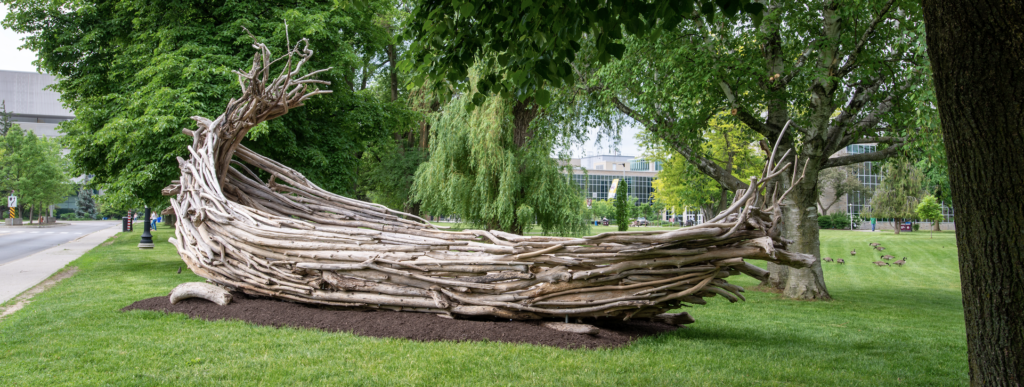
Practical Supports and Strategies to Manage Difficult Conversations
In vein with maintaining an inclusive classroom culture and learning environment, comes a readiness to manage difficult and sensitive conversations and contentious discourses, while actively interrupting harm. This section provides a myriad of resources to assist in managing and mediating classroom content and discussion that may elicit sensitive, contentious, competitive, emotional and hard dialogues from diverse learners. You will find a collection of resources that are instrumental in addressing emotionally charged, politically intricate, and intersectional topics within the educational sphere.
An introduction to content warnings and trigger warnings – This resource guide is a primer to understanding content warnings. It offers several ways to implement content and trigger warnings in your classroom. (Resource guide, PDF, 8 pages, University of Michigan)
Let’s talk: discussing race, racism and other difficult topics with students – Strategies are shared in this resource to prepare and facilitate difficult conversations about race and racism and other contentious topics. (Guidebook, 24 pages, The Teaching Tolerance Guide)
Guidelines for discussing difficult or high-stakes topics – The guidelines can help educators facilitate difficult classroom discussions around controversial issues. Additional resources are provided. (Webpage, Michigan University)
Addressing emotionally or politically charged news with students – Tips and strategies to navigate high tension news with students. (PDF, 3 pages, University of Washington)
Handle difficult moments with respect & sensitivity – This resource provides strategies for three distinct types of difficult dialogues that can emerge in your classroom: teaching in tumultuous times, hot moments, and microaggressions. (Webpage, Carnegie Mellon University)
Teaching contentious topics – This workshop discusses the benefits of and considerations for teaching contentious topics in a variety of classrooms and outline specific strategies that you can use to set up, prepare, facilitate, and conclude a discussion on a contentious topic in your course or discipline. (Workshop, MacPherson Institute, McMaster University)
Further Resources
Difficult subjects: insights and strategies for teaching about race, sexuality, and gender –A collection of essays from scholars across disciplines, institutions, and ranks that offer diverse and multi-faceted approaches to teaching about subjects that prove both challenging and often uncomfortable for both the professor and the student. (Book, by Ahad-Legary & Poon, 298 pages)
Practical Supports and Strategies to Design Anti-Oppressive Curriculum and Content
This curated selection of resources provides educators with actionable supports and strategies to infuse anti-oppressive principles into their curriculum, course design and content. It encompasses a diverse range of materials, from learning outcomes, course goals and objectives, inclusive syllabus construction to equitable course design, all aimed at fostering an educational environment where every student feels valued and heard. This section ensures that teaching not only imparts knowledge but also prioritizes EDI at every stage of course development.
Advancing inclusion and anti-racism in the college classroom: a rubric and resource guide for instructors – This tool aims to support educators in developing anti-racist approaches to course design and teaching practices in the undergraduate and graduate setting. (PDF Guide, by Blonder et al., 39 pages, Berkeley University)
Designing an inclusive syllabus – This webpage includes information on the following topics: accessibility, warm tone, instructor information, statement of values, course goals and objectives, assessment, policies, clear course schedule and reflective questions. (Webpage, Columbia University)
Anti-Racism Curriculum and Pedagogy Toolkit – This toolkit presents an approach, tools and resources that will equip instructors and instructional teams to implement anti-racist pedagogy in their curriculum and teaching practice across all programs and courses. (PDF Toolkit, 37 pages, Norquest College)
Diversifying course content through an EDI perspective – This resource outlines strategies for diversifying course content that can be used during the early stages of course design or after the course begins. (Webpage, University of Calgary)
Course Design Equity and Inclusion Rubric – A detailed rubric considering content, instructor, community and assessment. (Rubric, Stanford University)
Syllabus review guide for equity-minded practice – This guide facilitates a self-assessment of teaching approaches and practices from a racial/ethnic equity lens; and allows faculty to consider changes that result in more equitable teaching approaches and practice. (PDF Guide, 43 pages, University of Southern California)
Guidelines for Queering Core Teacher Education Courses – While this resource focuses specifically on teacher education, its contents are largely applicable to university teaching and learning environments too. It addresses anti-homophobia/anti-transphobia interventions, 2SLGBTQ+ inclusion strategies, critiques of inclusion as an organizing framework, queering pedagogies and approaches, and Indigiqueering approaches. (Webpage, RISE: Queering Teacher Education)
Diversity Statement on a Syllabus – Considerations and recommended language for diversity statements with samples. (Webpage, Carnegie Mellon University)
Anti-racist strategies for curriculum revision tool – Anti-racist checklist for assessment practices and curriculum revisions. (Checklist, 4 pages, Queens University)
Inclusive syllabus review: - Practical checklist syllabus review tool to assess inclusive syllabi. (Checklist PDF, 4 pages, Columbia University)
Inclusion by design: survey your syllabus and course design - A practical survey tool provided with a five-point scale, divided into three sections: 1) The context and design of your course; 2) The “text” of your syllabus and course design; and 3) And the subtext of your syllabus. (Survey tool PDF, 8 pages)
Further Resources
Faculty Positionality Statements – A short module to help write a positionality statement that can be included in your syllabi, teaching philosophy statements, or promotion and tenure package. (Open Access Course, by Chen, Y.; Djerbal, Y.; & LeGros, N., Queen’s University)
The social justice syllabus design tool: a first step in doing social justice pedagogy – (Focus on STEM) This article offers a systematic approach to course re-design by which educators can assess their classroom environment and course content. (Scholarly Article, by Taylor et al., 35 pages)
Ten simple rules for building an anti-racist lab – 10 rules are presented to help labs develop anti-racists policies and action to promote racial and ethnic diversity, equity, and inclusion in science. (Scholarly article, by Chaudhary and Berhe, 9 pages)

Practical Supports and Strategies for Inclusive Grading and Assessment Practices
This section provides educators with key strategies and tools for inclusive grading and assessment such as course evaluations, instructor self-assessments, assignment guidelines and rubrics, metrics of assessing student performance, grading structures and more. It features resources for educators committed to fair and diverse assessment practices that are inclusive of alternative assessments, authentic assessments and equity-driven grading practices to honor all students’ efforts towards academic success. It encourages a critical review of existing assessment cultures and metrics, advocating for flexible and varied approaches that reflect a commitment to decolonial and inclusive educational practices.
Beyond the exam: an alternative assessment online toolkit – The toolkit contains a bank of exemplars, resources and instructions as well as a space for users to share adapted or newly designed assessment approaches that have proven successful for their learners and context. (Opensource, Pressbook, McMaster University, College Boréal and Brock University)
Faculty Rubric Tool: Authentic Assessment – This tool provides several rubrics to apply to your own assessments for consideration. (Toolkit PDF, 30 pages, Norquest College)
Open-access editable participation self-assessment teaching resources – participation goals form, midterm participation check in form, participation final reflection form (Open-source resources, by Alanna Gillis)
Grading multilingual students’ papers: a practical guide – This guide raises questions to consider when deciding what grade to give papers written by multilingual students, with a marking strategy suggested for each type of problem. (PDF, 4 pages, by Leora Freedman, University of Toronto)
Three different ways to ungrade: contract grading, completion grading, and self-grading - The pros and cons of three different ungrading methods are shared. (Video, by Molly Monet-Viera, length 5:57, Boston University)
The power of self-assessment: how to help students with the REDO technique – Explore self-assessment practice for students through the process of REDO: Reflect. Edit. Discover. Observe. (Editable PDF guidebook, by Fabiola Torres, 14 pages, Course Hero)
Marking efficiently and effectively – This workshop includes fair grading practices and marking objectively and consistently. (Workshop, MacPherson Institute, McMaster University)
Rethinking grading using DEI frameworks – Critiques traditional grading through a DEI lens and considers how alternative grading practices can promote not only better learning, but also inclusion and justice. (Video, by Marie McDonough, length 5:59, Boston University)
Further Resources
Authentic assessments: how to measure student-learning in real-world contexts – This presentation amplifies the importance of assessment as holistic, transformative, and authentic to enhance student learning and shares strategies for authentic assessment. (Open-Source Google Slides, by Micheal G. Strawser, Course Hero)
Decolonising formative assessment – Highlights the need to question dominant (modern) understandings of assessment as ‘objective’ measurement and re-imagine formative assessment practices that might support decolonisation agendas. (Book Chapter, by Crossouard & Oprandi, 16 pages)
Peer review with 500 students – One instructor’s reflection on how to incorporate Peer Review in a large enrollment class. (Webpage, by Carolyn Samuel, McGill University)
Labor-based grading contracts: building equity and inclusion in the compassionate writing classroom, 2nd edition – Drawing on anti-racist teaching practices, labour-based grading contracts is suggested as a compassionate approach in the writing classroom. (Opensource e-book, by Asao B. Inoue, 392 pages.)
Reconceptualizing participation grading as skill building – This article reconceptualizes participation grading as an opportunity to motivate skill building across a variety of dimensions. (Scholarly article, by A. Gillis, 12 pages)
Ungrading – Links to scholarly research articles, blog posts, helpful resources, and stories from instructors who have practiced ungrading. (Webpage, Teach Anywhere)
Practical Supports and Strategies to Enhance the Academic Journey of International and Linguistically Diverse Students
This section offers a collection of resources attends to non-assimilative pedagogical designs and classroom practices that address the nuanced barriers faced by learners whose first language is not English and international students. By incorporating global perspectives and student narratives, this collection of resources emphasizes the importance of enhancing a sense of belonging for students from non-domestic countries of origin. It also explores the intersection of digital pedagogy with international education, ensuring that students are supported in both digital and traditional learning spaces. This section hopes to provide a diverse array of considerations for achieving equitable global learning outcomes.
Building community with international students through classroom contracts – This talk focuses on how co-authoring a class contract with students can create a safe and inclusive learning environment that encourages appreciation for diversity. (Video, by Mary Elizabeth Fincke, length 5:18, Boston University)
Teaching international students: strategies to enhance learning – This resource includes tips to internationalising the curriculum, making lectures accessible, encouraging participation, adopting an educative approach to plagiarism, supporting students in developing critical thinking skills and explaining assessment expectations. (Guide, by Sophie Arkoudis, 18 pages, University of Melbourne)
Teaching international students: promising practice – This tip sheet provides ideas and teaching practices that can help international students develop a sense of belonging in classes and succeed academically. (Tip sheet, 2 pages, University of Massachusetts)
English as an additional language in the classroom – This module will explore some of the unique characteristics and needs of ELLs and outline strategies for designing learning materials, lessons, and assessments to support these learners. (Module, MacPherson Institute and MELD office, McMaster University)
Further Resources
What international students say they need - The webpage shares the experiences and needs of international students. (Webpage, by Adriana Perex-Encinas, Universidad Autónoma de Madrid)
The dislocated ‘outsiders’ within international Canadian higher education – This article explores how racialized international students are perceived as the ‘other’ and shares their experiences of belongingness. (Scholarly article, by Shamiga Shamy Arumuhathas, 7 pages, Western University)
International students and their academic experiences: student satisfaction, student success challenges, and promising teaching practices – This chapter calls for rethinking education across borders by examining the North American international student academic experience with particular focus on enhancing student satisfaction and promising teaching practices and increasing the faculty role in campus internationalization. (Scholarly article, by Clayton Smith, 17 pages, University of Windsor)
Teaching and engaging international students: people-to-people empathy and people-to-people connections – This article presents a new framework for conceptualizing the teaching, learning, and engagement for international students, which emphasizes people-to-people empathy and people-to-people connections. (Scholarly article, By Ly Thi Tran, 6 pages, Deakin University, Australia)
Connecting best practices for teaching linguistically and culturally diverse international students with international student satisfaction and student perceptions of student learning – This paper explores promising teaching practices for teaching linguistically and culturally diverse international students by identifying the teaching practices that have high levels of international student satisfaction and student perceptions of learning. (Scholarly article, by Smith et al., 15 pages, University of Windsor)
International students in digital pedagogy and learning - A resource page developed specifically for international students teaching and learning considerations and paradigms in digital and non-digital contexts. (Resource webpage, University of Toronto)
Reconciliation, Decolonization and Indigenization
As a first step, it is important to understand what the terms reconciliation, decolonization and indigenization mean. These terms are sometimes used interchangeably, but according to Indigenous scholars and activists (see Alfred, 2009; Alfred & Corntassel, 2005; Pete, 2015), they are separate but interrelated processes. There is no clear definition of decolonization or Indigenization; all definitions are complex, multi-faceted, and contested. An attempt has been made to define and introduce these concepts and it is important to acknowledge these frictions in definitions to maintain the debates and intricate histories these terms reflect as language also holds the power to enact systemic change.
Reconciliation is about addressing past wrongs done to Indigenous Peoples, making amends and improving relationships between Indigenous and non-Indigenous people to create a better future for all. As Chief Justice Murray Sinclair, Chair of the Truth and Reconciliation Commission, has stated, “Reconciliation is not an Aboriginal problem – it involves all of us.” Reconciliation emphasizes changing institutional structures, practices, and policies, as well as personal and professional ideologies, to create environments committed to strengthening relationships with Indigenous peoples.
Decolonization is the process of undoing colonizing practices that promote the superiority and privilege of Western thought and approaches. It necessitates shifting our frames of reference with regards to the knowledge we hold; examining how we have arrived at such knowledge; and considering what we need to do to change misconceptions, prejudices, and assumptions about Indigenous Peoples. Within the educational context, it involves confronting and challenging the colonizing practices and structures that have influenced education in the past and are still present today.
Indigenization refers to the process of incorporating indigenous perspectives, practices, and values into various aspects of society, such as education, culture, governance, and economic development. It aims to recognize and respect the unique contributions of indigenous communities, fostering inclusivity and promoting the preservation of their cultural heritage within broader societal frameworks. Indigenization seeks to redress historical injustices and create more equitable and mutually beneficial relationships between indigenous and non-indigenous populations.
References
Alfred, T. (2009). Wasáse: Indigenous pathways of action and freedom. Toronto, ON: University of Toronto Press.
Alfred, T. & Corntassel, J. (2005). Being indigenous: Resurgences against contemporary colonialism. Government and Opposition, 40, 597-614.
Pete, S. (2015). Indigenizing the academy: One story. Aboriginal Policy Studies, 4(1), 65-72
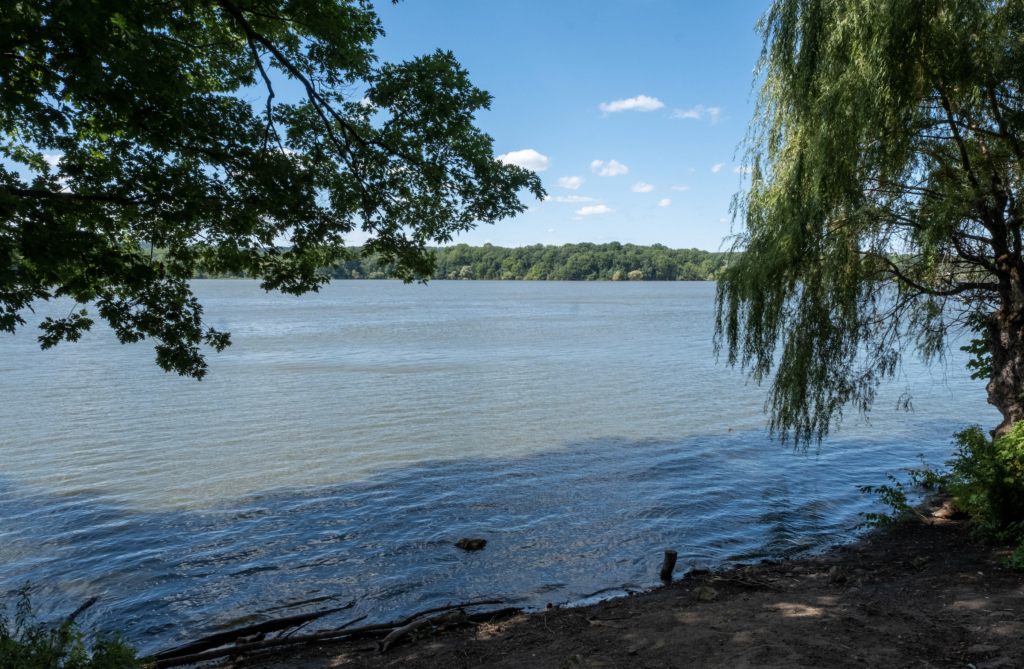
Foundational Understanding: Indigenous Histories, Worldviews and Indigenous-Canadian Relations
The following collection of foundational resources are for educators, administrators, and university staff to understand the relationship between Indigenous peoples and Canada, understanding Indigenous histories and our role as university professionals and educators.
Land Back – A Yellowhead Institute Red Paper – This Red Paper is about how Canada dispossesses Indigenous peoples from the land, and in turn, what communities are doing to get it back. (PDF Report, 68 pages, Yellowhead Institute, Toronto Metropolitan University)
Cash Back – A Yellowhead Institute Red Paper – Picking up from Land Back, the first Red Paper by Yellowhead about the project of land reclamation, Cash Back looks at how the dispossession of Indigenous lands nearly destroyed Indigenous economic livelihoods. Cash Back is about restitution from the perspective of stolen wealth. (PDF Report, 76 pages, Yellowhead Institute, Toronto Metropolitan University)
Indigenous Canada, University of Alberta – Free 12-lesson course focusing on the histories and perspectives of Indigenous peoples. (Open online course, University of Alberta)
Indigenous Education Primer, McMaster University – The purpose is to inform the McMaster community and other Indigenous education stakeholders about Indigenous histories, worldviews, education & pedagogy, and relationships with McMaster University. (PDF Report, 100 pages, McMaster University)
Pulling Together: Foundations Guide – This guide explores the diversity and histories of Indigenous Peoples and their contemporary realities in Canada. It examines how these realities have shaped relationships and continue to influence how those who work with Indigenous peoples and colleagues in higher education. (Open education e-book, BC Campus)
Indigenous Rights, and Law – Reading lists to learn more about Indigenous rights in Canada which includes colonial history, Indigenous law, Indigenous research methodologies and Indigenous resurgence and reconciliation. (Website, First Peoples Law)
Reconciliation
This collection of resources provides guidance for educators and institutions in higher education to understand and advance the process of reconciliation. The Truth and Reconciliation Commission’s 94 Calls to Action Report serves as a roadmap, emphasizing the crucial role of education in redressing the legacy of the residential school system. This collection features firsthand accounts from Indigenous experts, progress reports highlighting the need for sustained efforts and accountability and ideas for educators to initiate and facilitate dialogue and promote institutional change. As Educators and learners, we bear a collective responsibility to engage in the process of reconciliation.
TRCs 94 Calls to Action – Learn more about the 94 Calls to Action, and the process of the Truth and Reconciliation Commission. (Webpage, CBC News)
Timeline of the Truth and Reconciliation Commission process – A brief timeline. (Webpage, CBC News)
TRC Mini Documentary – Chair of the TRC, Senator Murray Sinclair talks on Reconciliation. (YouTube Video, length 2:55, National Centre for Truth and Reconciliation)
Calls to Action Accountability Reports – Yellowhead Institute – The accountability reports have been conducting annual analyses of Canada’s progress on the Calls to Action since 2019 and identifies the barriers and drivers of reconciliation. (PDF Reports 2019-2023, Yellowhead Institute, Toronto Metropolitan University)
How do you like your reconciliation? – Yellowhead Institute – A quick and useful tool to assist in understanding the four main categories of reconciliation efforts in Canada with a practical diagram for users to complete. (PDF, 2 pages, Yellowhead Institute, Toronto Metropolitan University)
Reconciliation Reading list – A collection of readings to help you on your journey to reconciliation. (Website, Simon Fraser University)
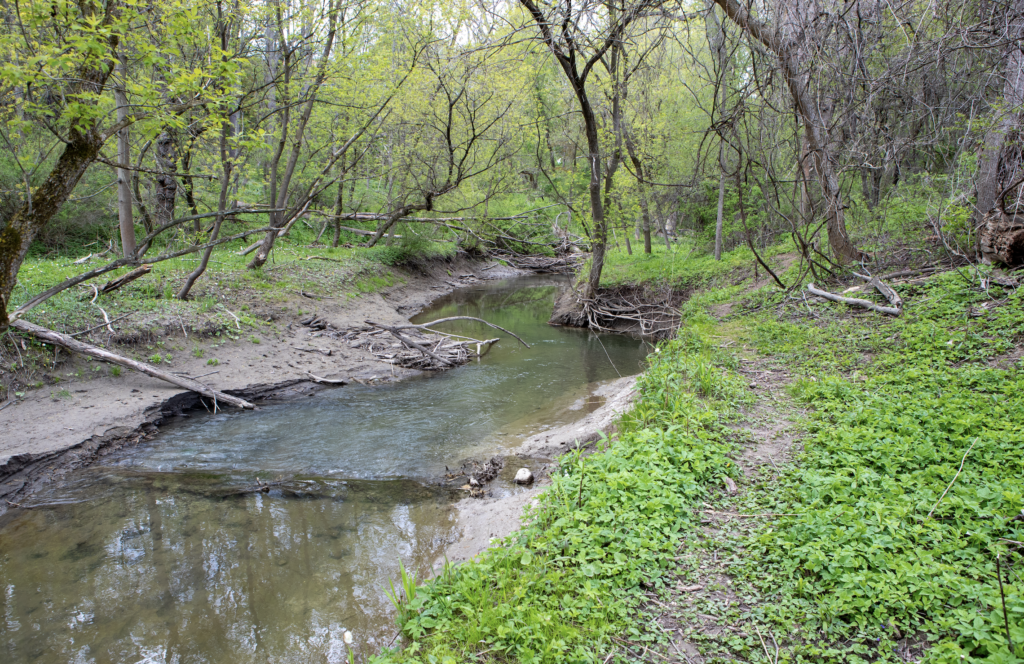
Practical Supports and Strategies to Promote Reconciliation in Teaching and Learning
Explore a range of tools, guides and strategies to promote reconciliation in teaching and learning.
What is reconciliation? Indigenous educators have their say – Indigenous experts take a look at what it really means to reconcile after generations of systemic racism against Indigenous peoples. (YouTube video, length 3:11, TVO)
Reconciliation and Education– TEDx talk by Starleigh Grass that discusses – Lessons to remember before thinking about, talking about and teaching about residential schools and reconciliation. (YouTube video, length 7:37, TEDx Talks)
The Indigenous Knowledge Implementation Packsack: A Handbook for Embedding Indigenous Ways of Knowing in Your Teaching – A practical guide that supports postsecondary educators in integrating Indigenous Knowledge into their teaching through tailored strategies and visual aids. (Handbook PDF, Higher Education Quality Council of Ontario)
Weaving Ways – Guide for educators who are deepening their foundational knowledge and educational approaches to foster reconciliation. (PDF, 16 pages, Alberta Regional Professional Development Consortia)
SKODEN: Teaching, Talking, and Sharing About and for Reconciliation – In Skoden, instructors, staff, and administrators consider how to decolonize and Indigenize those aspects of post-secondary settings they are responsible for. (Open-source textbook, Seneca College)
Further Resources
Reconciliation Through Education: A Model of Ethical Spaces and Relationality – This article offers a conceptual model of reconciliatory education. The model invites educators to move beyond colonial schooling practices to embrace decolonizing and Indigenizing approaches and the powerful potential of relational teaching and learning. (Scholarly Article, by Poitrass Pratt & Bodnaresko, 18 pages, University of Windsor)
Indigenous Histories and Reconciliation: Moving Towards Reconciliation Through Capacity Building – This module supports individual people in their own journeys toward reconciliation through seven modules based on the grandfather teachings: love, respect, honesty, humility, bravery, truth, and wisdom. (Free open-access online module, e-campus Ontario)
Locating yourself: Crafting Intentional Land Acknowledgements
This collection of resources provides tools and guidance for delivering meaningful and intentional land acknowledgements. Crafting a land acknowledgment involves honoring the traditional territories and treaty lands that we occupy, acknowledge truths, understand Indigenous protocols and lands rights, and situating ourselves in relation to that truth. These resources can assist you to move beyond words to make land acknowledgment an authentic starting point for truth, reconciliation and upholding Indigenous sovereignty.
In preparing your land acknowledgement it may be useful to think through the terms of “truth and reconciliation”: a land acknowledgement is a way to share the truth about the lands we inhabit as Canadians, and an opportunity to begin the relational work of reconciliation. As Cutcha Risling Baldy, a member of the Hoopa Valley Tribe and an associate professor of Native American Studies at California State Polytechnic University, Humboldt states:
“The land acknowledgment gets you to that start…Now it’s time to think about what that actually means for you or your institution. What are the concrete actions you’re gonna take? What are the ways you’re gonna assist Indigenous peoples in uplifting and upholding their sovereignty and self-determination?” (Source: So you began your event with an Indigenous land acknowledgment. Now what?)
*As more and more workplaces, and job roles are performed virtually, it is important to consider all the lands you work and live on.
Tool: Locate yourself, and your campus location here – This website mapping tool will help you locate yourself and provide information on the traditional stewards of the lands you occupy, including treaty information. (Website, Native Land)
Dish with One Spoon – This webpage aids in understanding the term ‘a dish with one spoon’. (Webpage, The Canadian Encyclopedia)
Six Nations of the Grand River land rights – McMaster’s Land Acknowledgement refers to a pre-contact resource-sharing protocol referred to as the Dish with One Spoon Wampum agreement. Learn more about this pre-contact, international agreement here. (Website, Six Nations of the Grand River)
Mississaugas of the Credit First Nation lands and territories – This website provides enriching information about the Mississauga’s of the Credits First Nations land and territories, including recent news, events, community profiles, and community wellness. (Website, Mississaugas of the Credit First Nation)
A Guide to Indigenous Land Acknowledgement – A guide on creating an effective Indigenous land acknowledgment statement, emphasizing the importance of self-reflection, research on Indigenous history and presence, and incorporating concrete action steps to support Indigenous communities. (Website, Native Governance Centre)
More than words: Land acknowledgement guide – This guide provides a short framework for delivering meaningful land acknowledgments. (PDF, 2 pages, Western University)
Know the Land – This resource provides guidance on delivering meaningful land acknowledgments. (Website, Laurier Students Public Interest Research Group, Wilfred Laurier University)
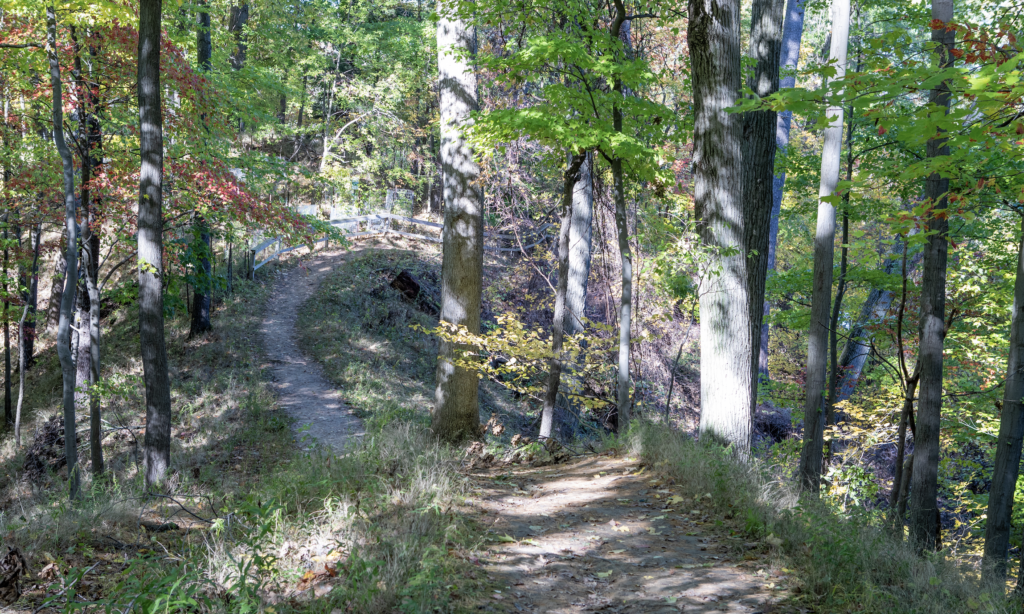
Decolonization
This collection of resources emphasizes how decolonization in education refers to the interruption of, and un-doing of colonial practices by working towards balancing power relations between Indigenous, and non-Indigenous peoples. For teaching staff and faculty, this may mean researching for the first time the role that the academic institutions or your discipline has played in the dispossession of Indigenous ways of knowing.
Decolonization is for Everyone – Nikki Sanchez discusses what colonization looks like and how it can be addressed through decolonization. (YouTube video, length 13:18, TEDx)
A Beginner’s Guide to Decolonization – Kevin Lamoureu provides an introduction to decolonization and reconciliation. (YouTube video, length 14:18, TEDx)
Decolonizing Education: Nourishing the Learning Spirit – A book that discusses the nature of Eurocentric models of education, and their devastating impacts on Indigenous knowledge. The book proposes a new model of education which incorporates both Indigenous and Eurocentric thinking. (Book, Battiste and Bouvier)
Decolonization is not a metaphor – “Our goal in this article is to remind readers what is unsettling about decolonization. Decolonization brings about the repatriation of Indigenous land and life; it is not a metaphor for other things we want to do to improve our societies and schools.” (Scholarly article, by Tuck and Yang, 40 pages)
Practical Supports and Strategies to Promote Decolonization in Teaching and Learning
Explore a range of tools, guides and strategies to promote decolonization in teaching and learning.
Pedagogies for Decolonizing – Introductory activities that engage students in initial steps in understanding the systemic structure of colonization. (Scholarly article, by Iseke-Barnes, 26 pages)
Decolonizing your syllabus? You might have missed some steps – This short essay explains how you need to go further than simply including some Indigenous writers on your reading schedule; just doing this is tokenism and can be a form of colonialism itself. (Webpage, Civic Laboratory of Environmental Action Research)
Decolonize the Academy: Video and Learning Guide – Both these resources offer university instructors background information on the imperial and colonial roots of Westernized universities. The guide contains helpful resources and reflection questions that support instructors in more deeply engaging with the video module. (YouTube Video, length 34:27; Learning PDF guide, Candace Brunette-Debassige, 11 pages, Western University)
Toward a Decolonizing Pedagogy: Video and Learning Guide – Both these resources will offer Indigenous perspectives on decolonial change and introduce instructors to four guiding principles that can help them start to move toward decolonizing their pedagogies by: increasing decolonial consciousness; reflecting on complex positionalities; engaging critical and relational pedagogies; and taking responsibility for ongoing lifelong (un)learning. (YouTube Video, length 41.06; PDF guide, Candace Brunette-Debassige, 13 pages, Western University)
Further Resources
Conversations on Decolonization – Learning module designed to help instructors enhance student learning by opening the dialogue about which knowledges are privileged and why. (Free Online Learning Module, Queens University and UBC)
Indigenous e-Learning Assessment Strategies – Explores assessments in post-secondary online studies using a decolonizing approach to education and student success. (Free Online Course, eCampus Ontario)
Engaging Indigenous Pedagogical Approaches in Online Learning – Toolkit for adapting and engaging respectfully with Indigenous Peoples, communities and knowledge systems while actively learning about digital literacy, fluency and decolonizing digital spaces. (Free Online Course, eCampus Ontario)
Arriving at Indigenous Knowledges: Decolonial Approaches for English Language Learners (ELL) – This 4-part asynchronous online course is for domestic and international ELL students entering or currently enrolled in post-secondary studies and will prepare them for learning about Canadian and Indigenous histories and concepts that they may encounter in their programs. (Free Online Course, eCampus Ontario)
Indigenous Research Guide – This guide aids decolonization efforts and highlight Indigenous research, methodologies, voices, and ways of knowing that have been marginalized due to dominant Western practices. Research guides by academic discipline are also shared. (Website, University of Waterloo)
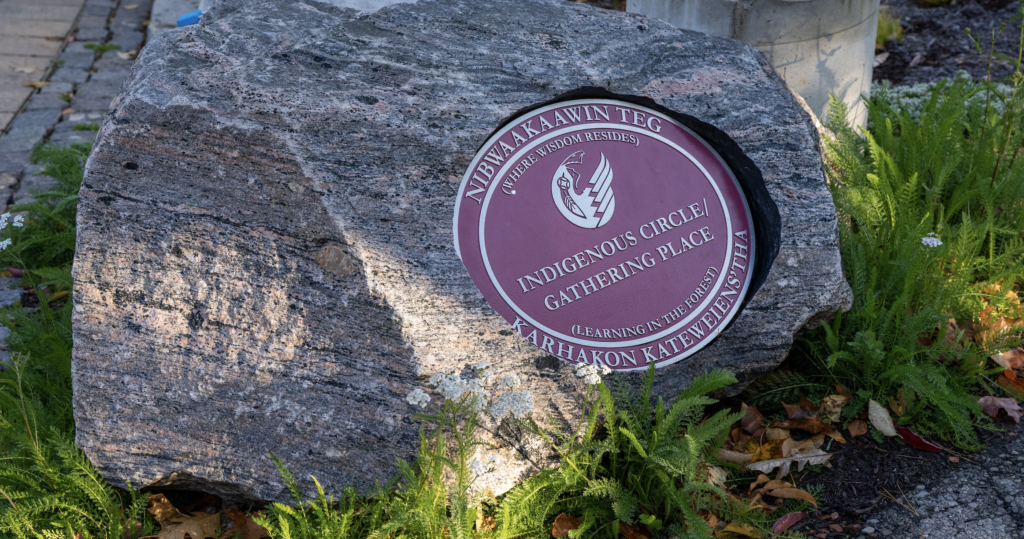
Indigenization
This collection of resources provides guidance for educators and institutions in higher education to understand and advance the ongoing process of Indigenization.
Indigenous Education Primer – The purpose is to inform the McMaster community and other Indigenous education stakeholders about Indigenous histories, worldviews, education & pedagogy, and relationships with McMaster University (PDF, 100 pages, McMaster University)
Indigenous Research Primer – The purpose of the Indigenous Research Primer is to guide those at McMaster University who are engaging with Indigenous Peoples and communities in their research. The Primer seeks to inform Indigenous and non-Indigenous, early and experienced researchers at any stage of their career and/or education. (PDF & videos, McMaster Indigenous Research Institute)
McMaster University Indigenous Strategic Directions 2021 – This strategy document was authored by a community of Indigenous scholars and staff at McMaster, along with community representative from Six Nations, the MCFN, and urban Indigenous organizations. The strategic directions contained here are imagined as a McMaster University campus-wide approach sustained by a broad network of institutional and other allies within and beyond the university. (PDF, 29 pages, McMaster University)
The Indigenous Health Learning Lodge (IHLL) – The IHLL at McMaster University works alongside the Faculty of Health Sciences towards creating a learning environment that is culturally safe – to work with humility to enable sustainable systems change and to advance the work around concepts of truth, reconciliation and anti-colonization with all aspects of Indigenous health and well-being. (Website, McMaster University)
McMaster University Libraries
McMaster University Libraries have been working toward curating and creating a number of resources to support educators and students in their learning and research.
Indigenous voices in McMaster University’s archives – McMaster University currently houses archival collections of: Basil Johnston, David Moses, and E. Pauline Johnson. Physical and digital collections available. (Website, Archives collection)
McMaster University’s Library guide – Indigenous History month digital display – Digital collection including links to reading recommendations by Faculty; databases; features on McMaster authors. (Website, Learning resources collection)
McMaster University Health Science Library Indigenous Health resource guide – Health related reading lists and recommendations. (Website, resources collection)
Deyohahá:ge (Two Roads) Indigenous Knowledge Centre, at Six Nations Polytechnic is dedicated to bringing together two streams of consciousness – the ancestral Indigenous knowledge with the best of modern academic knowledge. Digital, and physical collections regarding Six Nations history and culture.
SNP IK Centre Research and Resources – Variety of resources for faculty, students and individuals interested in learning about Indigenous culture. (Website, Six Nations Polytechnic)
SNP IK Centre Collection Catalogue – A list of various materials that are available at the Indigenous Knowledge Centre (IKC) in Six Nations of the Grand River Territory with subjects including anthropology, media, art, history, education, modern medicine, wampum’s and more (PDF, 55 pages, Deyohahá:ge (Two Roads))
An Indigenous water research program led by McMaster University Professor, Dr. Dawn Martin Hill. Part of their work involves producing a number of tools and educational resources for Indigenous communities to build resilience and empower youth.
Ohneganos research guide (Open access PDF, 21 pages, McMaster University)
Ohneganos Digital story bank for educator use (YouTube Video Collection, Digital Stories, Ohneganos Ohnegahdę:gyo)
With over 50,000 artifacts in the Museum collection, the Centre is one of the largest facilities in Canada managed and administered by First Nations. The Woodland Cultural Centre offers a variety of virtual tours, education programs, and workshops that provide interested visitors with the opportunity to learn about an assortment of topics covering the past, present, and future of Southern Ontario’s First Nations Peoples. Located on the grounds of the former Mohawk Institute Residential School in Brantford, Ontario
- Tours, Education, and Workshops – (Website)
Indigenous Studies iPortal Research tool (USask) – Searchable database of Indigenous Studies sources for researchers. Sign in through McMaster Library for full access. (Website, University of Saskatchewan)
Think Indigenous Podcast – Special podcast mini-series featuring Indigenous perspectives on education and is a partnership between Indian & Cowboy, the College of Education at the University of Saskatchewan and the Indigenous Teachers Education Program at the University of Saskatchewan. (Podcast, Think Indian)
Practical Supports and Strategies to Promote Indigenization in Teaching and Learning
Explore a range of tools, guides and strategies to promote indigenization in teaching and learning.
100 Ways: Indigenizing & Decolonizing Academic Programs – This list may be a helpful starting point for those who wish to act but are unsure where to begin. (Webpage article, by S. Pete, 8 pages, University of Regina)
Pulling Together, Indigenization Guides – A series of learning guides for public post-secondary staff to begin or supplement ways to Indigenize the institution and professional practice.
Includes guides for various roles. (Open Education resources in various formats, BC Campus)
- Foundations guide
- Teachers and Instructors,
- Leaders and Administrators,
- Staff, Advisors, and Student Services
- Curriculum developers and course planning
- Researchers
Indigenizing the curriculum -This video talks about what ‘Indigenizing the curriculum’ means and how it can be practiced. (Video, by Jo-ann Archibald, length 7:59, UBC)
Further Resources
Decolonizing our practice – Indigenizing our teaching – This article is framed as a conversation around the topics of what decolonizing and indigenizing the authors’ teaching looks like from their varied backgrounds and contexts. (Scholarly article, by S. Pete et al., 13 pages)
Applying Indigenizing Principles of Decolonizing Methodologies in University Classrooms– This article describes a case study of the Indigenization of university pedagogies, drawn from experiences as Indigenous faculty members working in the Werklund School of Education at the University of Calgary. (Scholarly article, by Louie et al., 18 pages)
Towards Indigenizing Higher Ed – Four-part story-telling series from diverse perspectives with additional resources on some commonly asked questions about indigenization. (Videos, Thompson Rivers University)

Accessibility and Universal Design for Learning
Getting started: Accessibility and Universal Design for Learning (UDL)
This sub-section is a curated collection of resources to help educators get started with implementing accessibility and Universal Design for Learning principles in their courses and pedagogical practices. It includes guides, frameworks and toolkits as well as outlining Ontario’s accessibility requirements and recommendations for evaluating and improving the accessibility of courses.
Postsecondary Course Accessibility Guide – (available in English and French) – The guide considers accessibility criteria based on provincial requirements and recommendations. The plain-language, responsive fillable forms and accompanying reference manual are designed to review and improve accessibility in university (or college) courses. (Guide, University of Waterloo, eCampus Ontario)
Educator’s Accessibility Toolkit – This website gathers Ontario-focused resources related to higher education and accessibility in one place. (Website, Council of Ontario Universities)
Accessibility Hub – This website gathers McMaster created and curated resources related to accessibility in one place. It’s an excellent starting place for all things accessibility at McMaster University. (Website, McMaster University)
Accessibility Basics – Legal requirements and standards, user experiences, procurement, universal design for learning, and accessibility testing. (Website, eCampus Ontario)
Universal Design for Learning – The original UDL framework, developed by the Centre for Applied Science and Technology challenges instructors to consider how they can incorporate flexibility into their courses highlighting nine guideline areas to consider. (Website, CAST)
Universal Design for Learning (UDL) – This module for educators explains UDL’s core principles, addresses systemic barriers in the classroom and courses and outlines principles of UDL for course design and delivery. (Free e-module, Queens University and University of British Columbia)
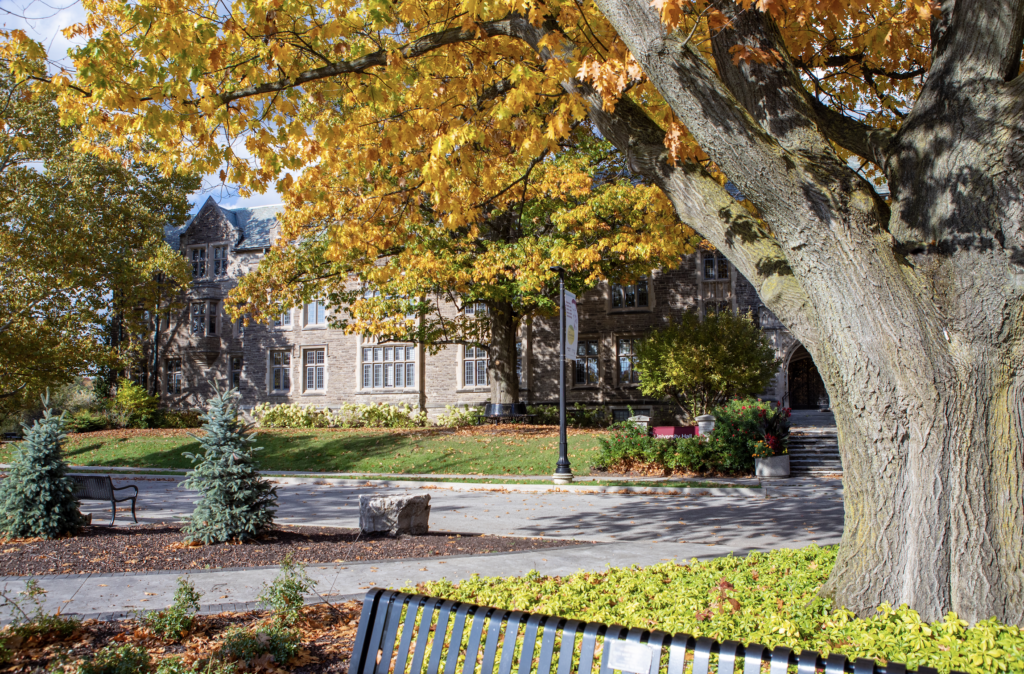
Practical Supports and Strategies to Promote Accessibility and UDL in Teaching and Learning
This comprehensive set of resources provides a range of guides and toolkits for instructors and educators on creating accessible and inclusive learning environments. UDL principles for making courses, materials, and activities accessible to all learners are explored. This sub-section also includes strategies for accommodating students with accessibility needs in areas like labs, exams, and essential course requirements.
Forward with Flexibility: A Teaching and Learning Resource on Accessibility and Inclusion – A comprehensive guidebook created at McMaster University to support instructors, Teaching Assistants, and those in other educational roles in applying Accessible Education principles across teaching and learning contexts to enhance access for all. (Guidebook, de Bie and Brown, McMaster University)
Library Accessibility Services Resources for Instructors – Library Accessibility Services works closely with instructors to obtain, create and/or provide of alternate format course material for SAS accommodated students. The webpage includes links to resources available to instructors to convert course materials. (Webpage, McMaster University)
Identifying the Essential Requirements of a Course or Program – This guide outlines a criterion for identifying and evaluating the essential requirements of courses and programs in the context of accommodating students with disabilities. It describes how to work with students with disabilities to adapt requirement as appropriate. (PDF, 2 pages, Council of Ontario Universities)
Universal Design of Instruction (DO-IT) – A framework that promotes designing learning environments that are usable by everyone, to the greatest extent possible, without adaptation. To achieve this, educators should consider three aspects of learner experience: usability, accessibility and inclusivity. (Website, by Burgstahler, S., DO-IT).
The Science of Inclusion: Making Our Lab-Based Courses More Inclusive – This pressbook is meant to provide general guidance on enhancing the accessibility of lab-based courses, with a particular focus on supporting the learning of students with physical disabilities. (Pressbook, by MacLean et al.)
Further Resources
Universal Design for Learning Inspiring Equity and Inclusion in Higher Education, George Brown College – Non-certificate modules to learn more about UDL and how it intersects with important areas of equity in higher education. (Learning modules, George Brown College)
Accessagogy Podcast – A podcast sharing strategies, resources and contextual practices that can make your pedagogy more accessible in higher education. (Podcast, by Ann Gagné)
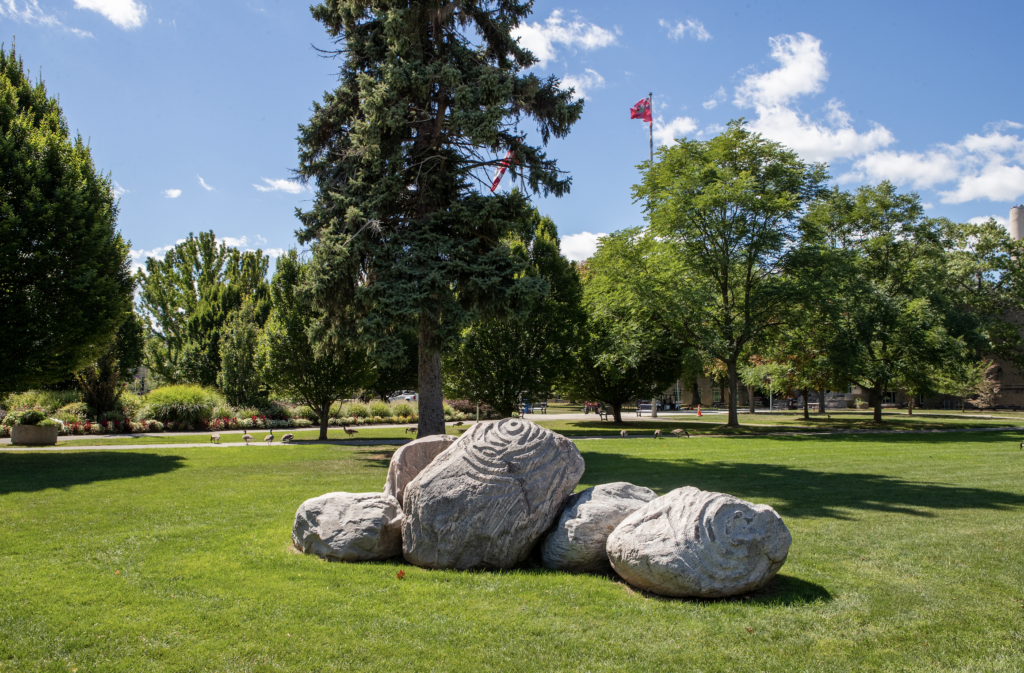
Practical Supports and Strategies to Promote Digital Accessibility and UDL in Teaching and Learning
These resources provide practical tools and strategies on creating accessible digital content and implementing UDL principles in online teaching and learning environments. Resources include checklists, step-by-step guides, templates, toolkits and training modules covering a wide range of topics such as designing accessible course materials (documents, presentations, videos), captioning multimedia, facilitating accessible virtual teaching, utilizing accessibility tools and features in learning management systems, and applying an accessibility-focused mindset throughout the course design and development process within digital spaces.
Supports and Strategies to Promote Digital Accessibility and UDL in Teaching and Learning: Resources
Accessibility Best Practices – Digital accessibility best practices when working with text, images, and other media. (Website, eCampus Ontario)
eLearning Accessibility Checklist – A quick checklist to verify the accessibility of your eLearning modules throughout the design and development process. (Checklist, eCampus Ontario)
Templates and Guidelines – Step-by-step guides and templates for authoring accessible content in various filetypes – PDFs, Word, PowerPoint, Excel and virtual meetings. (Website, eCampus Ontario)
Caption Options at McMaster – Quick resources that outlines several methods of generating and correcting captions on video and audio files. (Website, McMaster University)
Blackboard Ally – The Blackboard LMS has developed a free tool that performs document conversion; accepts PDF, DOC, DOCX, PPT, PPTX, HTML and outputs to tagged PDF, electronic Braille, audio MP3 and other formats. (Website, Blackboard)
SCULPT – A framework for creating accessible media. (Website, Worcestershire County Council, UK)
Designing an Accessible Online Course – This toolkit comprises a series of concise explanations of different aspects of accessibility and course design and includes relevant resources. It covers designing accessible course materials such as PDFs, word-processing documents, slide presentations, and videos, as well as issues in running accessible video meetings. (Toolkit, University of Arkansas)
Online Course Accessibility Checklist – This helpful guide for designing online courses includes tips, techniques, and a checklist for ensuring accessibility in an online class. (PDF, 38 pages, North Carolina Community College)
Further Resources
Accessible Digital Content Training – This Pressbook contains open-access text, image, and video-based training modules for creating accessible content within digital environments. This includes using content authoring programs such as the Microsoft Office 365 suite and Pressbooks platforms. (Training modules, 65-pages, Blackwood and Brown, McMaster University)
Accessibility in Higher Education – These short 6 video series discuss strategies for making digital education more inclusive for individuals with sensory impairments. It provides insights into creating a supportive learning environment for all students. (YouTube videos, UTL EduMedia ETH Zürich)
Critical Design Lab – A multi-disciplinary and multi-institution arts and design collaborative rooted in disability culture, with numerous materials and toolkits related to teaching/ pedagogy and protocols in addition to project descriptions. (Website, by Hamraie et al.)
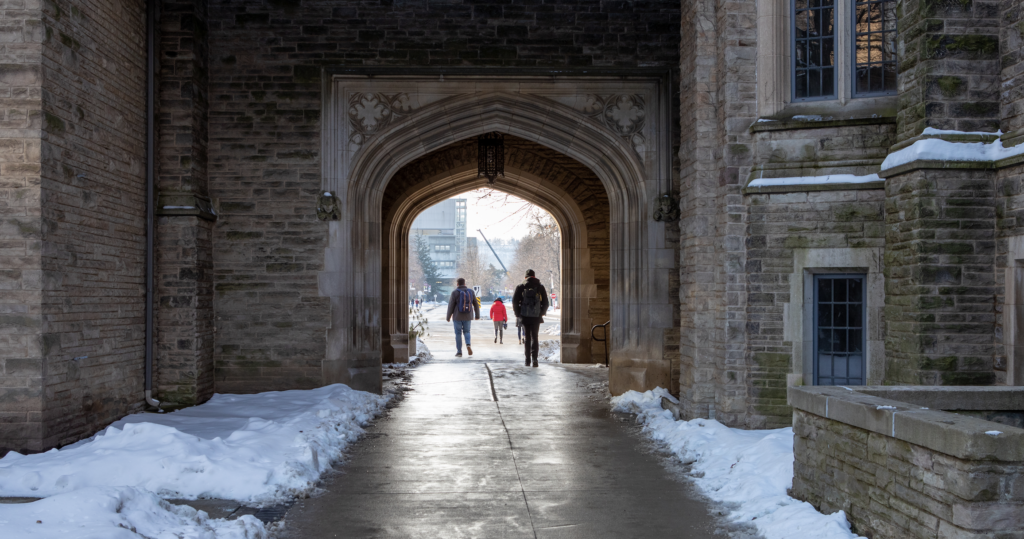
Supports and Contacts
Devon Mordell, mordelld@mcmaster.ca
Accessibility (Engineering, Humanities & Social Sciences), The MacPherson Institute,
Jennifer Faubert, fauberJL@mcmaster.ca
Accessibility (DeGroote School of Business, Health Sciences, Science and Other), The MacPherson Institute
Sharlee Cranston-Reimer, reimersd@mcmaster.ca
Equity Diversity and Inclusion Specialist
DeGroote School of Business, Equity Diversity and Inclusion Webpage
Dr. Kalaichelvi Saravanamuttu, kalai@mcmaster.ca
Professor and Associate Dean of Equity, Diversity, Inclusion & Indigeneity, Faculty of Science
Dr. Saroo Sharda, shards@mcmaster.ca
Associate Dean of Equity and Inclusion for the Faculty of Health Sciences
Helpful links
- Sexual Violence Prevention and Response Office, Equity and Inclusion Office
- Human Rights Dispute Resolution Program, Equity and Inclusion Office
- AccessMAC, Equity and Inclusion Office:
- Inclusion and Anti-Racism, Equity and Inclusion Office
- Student Wellness Centre
- Black Student Success Centre
- Indigenous Student Services
- Student Success Centre


